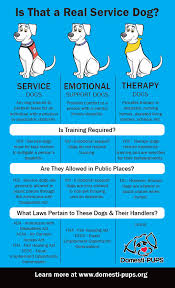The Importance of Training for Support Dogs
Support dogs play a vital role in enhancing the quality of life for individuals with various disabilities or special needs. Whether they are assisting people with physical disabilities, providing emotional support to those with mental health conditions, or aiding individuals with sensory impairments, support dogs undergo rigorous training to fulfil their important roles.
Types of Support Dog Training
Training for support dogs is highly specialised and tailored to the specific needs of the individual they will be assisting. Some common types of support dog training include:
- Service Dog Training: Service dogs are trained to perform specific tasks that assist individuals with physical disabilities, such as opening doors, retrieving items, and providing stability while walking.
- Therapy Dog Training: Therapy dogs provide emotional support and comfort to people in hospitals, nursing homes, schools, and other settings. They are trained to be calm, friendly, and responsive to human emotions.
- Guide Dog Training: Guide dogs assist individuals who are blind or visually impaired by navigating obstacles, stopping at curbs, and avoiding hazards in their path.
- Autism Assistance Dog Training: These dogs are trained to provide companionship and support to individuals with autism spectrum disorders. They can help reduce anxiety levels and improve social interactions.
The Training Process
The training process for support dogs is intensive and requires patience, consistency, and positive reinforcement. Trainers work closely with the dogs to teach them specific tasks based on the individual’s needs. This may involve obedience training, socialisation exercises, desensitisation to various environments, and task-specific skills.
Support dog training also focuses on developing a strong bond between the dog and their handler. This bond is crucial for effective communication and teamwork in real-life situations. Trainers often involve the future handler in the training process to ensure a smooth transition once the dog is ready to begin working.
The Impact of Support Dogs
The presence of a well-trained support dog can significantly improve the independence, confidence, and overall well-being of their handler. These remarkable animals not only perform essential tasks but also provide companionship, comfort, and unconditional love.
In conclusion, training for support dogs is a vital aspect of preparing them for their important roles in assisting individuals with disabilities or special needs. Through proper training techniques and dedication from trainers and handlers alike, these incredible animals can make a profound difference in the lives of those they serve.
Essential FAQs on Training and Registering Support Dogs
- What training does an assistance dog need?
- Can I register my dog as a support dog?
- How do you train a service dog for anxiety?
- Can I train my dog to be an assistance dog?
What training does an assistance dog need?
Training for an assistance dog is a comprehensive process that encompasses a range of skills tailored to the specific needs of the individual they will be supporting. Assistance dogs undergo extensive training to learn tasks such as retrieving items, opening doors, providing stability, guiding individuals with visual impairments, offering emotional support, and more. Obedience training, socialisation exercises, and task-specific skills are all essential components of an assistance dog’s training regimen. Additionally, building a strong bond between the dog and their handler is crucial for effective communication and teamwork. The training process focuses on reinforcing positive behaviours through consistent practice and reinforcement techniques to ensure that assistance dogs can perform their duties effectively and provide invaluable support to their handlers.
Can I register my dog as a support dog?
Many people wonder if they can register their dog as a support dog. In the UK, there is no official registry or certification process for support dogs. However, certain organisations can provide training and certification for assistance dogs to ensure they meet specific standards and requirements. It’s important to understand that support dogs undergo extensive training to perform their duties effectively and responsibly. If you believe your dog has the potential to become a support dog, it is advisable to seek guidance from professional trainers or organisations that specialise in assistance dog training to determine if your dog is suitable for such work.
How do you train a service dog for anxiety?
Training a service dog for anxiety involves a structured approach that focuses on providing comfort and support to individuals experiencing anxiety-related challenges. The training process typically includes teaching the dog specific tasks to help mitigate anxiety symptoms, such as deep pressure therapy, alerting to signs of distress, creating physical boundaries in crowded spaces, and guiding the handler to safety during panic attacks. Additionally, service dogs for anxiety undergo socialisation exercises to ensure they remain calm and responsive in various environments. Positive reinforcement techniques are employed to reinforce desired behaviours and strengthen the bond between the dog and their handler, ultimately enabling the dog to provide invaluable emotional support and assistance in times of need.
Can I train my dog to be an assistance dog?
Training a dog to be an assistance dog requires a specific set of skills, temperament, and training that not all dogs possess. While it is possible for some individuals to train their own dogs to perform certain tasks to assist with disabilities or special needs, the process is complex and demanding. Assistance dogs undergo extensive training from professional organisations to ensure they can reliably perform their designated tasks and provide support in various situations. These organisations have the expertise and resources to assess a dog’s suitability for assistance work and provide the necessary training to meet the specific needs of individuals requiring assistance. If you are considering training your dog to be an assistance dog, it is advisable to seek guidance from reputable assistance dog training programmes to determine the feasibility and requirements involved in this specialised training process.

